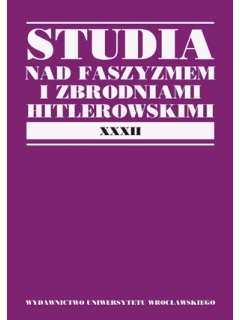

Articles

“PER UNA NUOVA DEMOCRAZIA” – CRITIQUE OF FASCISM IN THE POLITICAL THOUGHT OF GIOVANNI AMENDOLA
The study presents the political thought of one of the most prominent critics of Fascist regime, famous Italian liberal politician, publicist and journalist Giovanni Amendola 1882–1926. Particular emphasis is placed on his interpretation of Fascism as a branch of totalitarianism. Facing a progressive consolidation of Mussolini’s regime, Amendola had courage to defend constitutionalism and democratic rules of state’s functioning. Mussolini called him “the black soul of opposition”, perceiving Amendola as an intrepid and one of the most important critics of his regime. He was one of the first thinkers who properly understood the nature of Fascism by characterizing it as a completely novel phenomenon, as a movement which hid under the guise of creation of the stable government its imperial tendencies to establish “paternalistic absolutism”. In 1924 Amendola led so-called Aventine Secession. For the purposes of uniting anti-Fascist forces, he appealed to all opposition movements to take up a “liberal battle” in defense of freedom and rule of law by establishing National Union. He condemned Fascism for its depreciation of parliamentarianism, violation of all the democratic principles and of liberal tradition, attempts to establish the “official truth” and fostering the concept of total state where lawlessness reigned. As a liberal democrat, he distanced himself from those who saw Fascism as a movement for “national revival” or merely as a “provisional extremism of nationalistic character”. He claimed that only liberal-and-democratic ideals are capable of saving Italy from left-wing Bolshevism and from right-wing Fascist radicalism. Political thought of Giovanni Amendola was saturated with optimism and with firm belief that Italian nation will finally regain all its rights, reclaiming every freedom it is entitled to. That is why he considered activities aimed at achieving the “new democracy” to be his civic and intellectual obligation.